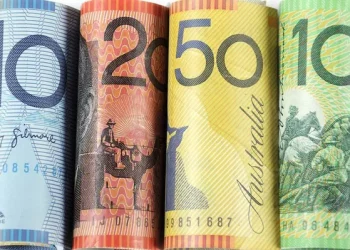The exchange rate between the euro and pound sterling is an important economic indicator that affects trade, investment, and tourism between the Eurozone and the United Kingdom. In this article, we will discuss what the exchange rate is, why it matters, and the factors that influence it.
What is the Current Exchange Rate of Euro to Pound Sterling?
As of May 24, 2023, 1 EUR is equal to 0.8699 GBP. This means that €1 EUR is equivalent to £0.8699 GBP. The exchange rate between the two currencies fluctuates daily and is influenced by various factors, including interest rates, inflation, political stability, and trade balance.
Why Does the Exchange Rate Matter?
The exchange rate matters because it affects the competitiveness of goods and services traded between countries. A weaker currency makes exports cheaper and more competitive, while imports become more expensive. On the other hand, a stronger currency makes imports cheaper and exports more expensive. This can have a significant impact on the balance of trade and the overall economy.
Factors that Affect the Euro to Pound Sterling Exchange Rate
There are several factors that influence the exchange rate between the euro and pound sterling:
Political Events
Political events such as elections, referendums, and government policies can have a significant impact on the exchange rate. For example, the Brexit referendum in 2016 caused the pound sterling to weaken significantly against the euro due to uncertainty surrounding the UK’s future relationship with the European Union.
Economic Indicators
Economic indicators such as inflation, GDP growth, and interest rates can also affect the exchange rate. Higher inflation or lower GDP growth can lead to a weaker currency, while higher interest rates can make a currency more attractive to investors and strengthen it.
Central Bank Policies
Central bank policies such as quantitative easing and interest rate decisions can also influence the exchange rate. For example, if the European Central Bank (ECB) decides to lower interest rates, it can make the euro less attractive to investors and weaken its exchange rate against the pound sterling.
How to Convert Euro to Pound Sterling
To convert euro to pound sterling, you can use online currency converters, banks and money transfer providers, or manually calculate the conversion. The exchange rate between EUR and GBP fluctuates daily and is influenced by various factors, including interest rates, inflation, political stability, and trade balance.
Online Currency Converters
There are many online currency converters that can provide real-time exchange rates and convert EUR to GBP. Some popular options include XE, Wise, and Google. To use an online currency converter, follow these steps:
Input your amount: Simply type in the box how much you want to convert.
Choose your currencies: Click on the drop-downs to select the currencies you want to convert between.
Get the result: The currency converter will show you the current rate and how it’s changed over the past day, week, or month.
Banks and Money Transfer Providers
Banks and money transfer providers offer currency exchange services that allow you to convert EUR to GBP. However, they may charge fees and offer less favorable exchange rates than online currency converters.
Manual Calculation
If you know the current exchange rate between EUR and GBP, you can manually calculate the conversion. To convert EUR to GBP, multiply the amount of EUR by the current exchange rate. For example, if the exchange rate is 0.8699, €100 EUR would be equal to £86.99 GBP (100 x 0.8699).
Conclusion
The euro to pound sterling exchange rate is an important economic indicator that affects trade, investment, and tourism between the Eurozone and the United Kingdom. Understanding the factors that influence it and how to track it can help businesses and individuals make informed decisions and manage their risks in the volatile currency markets.
Related Topics:

























